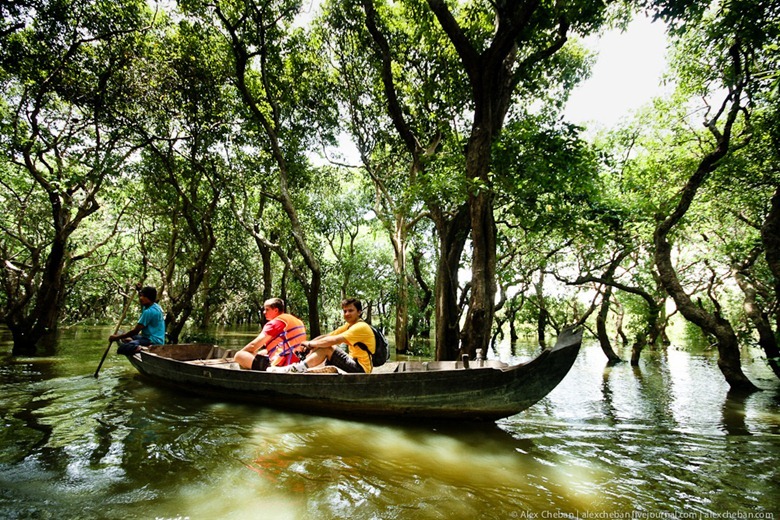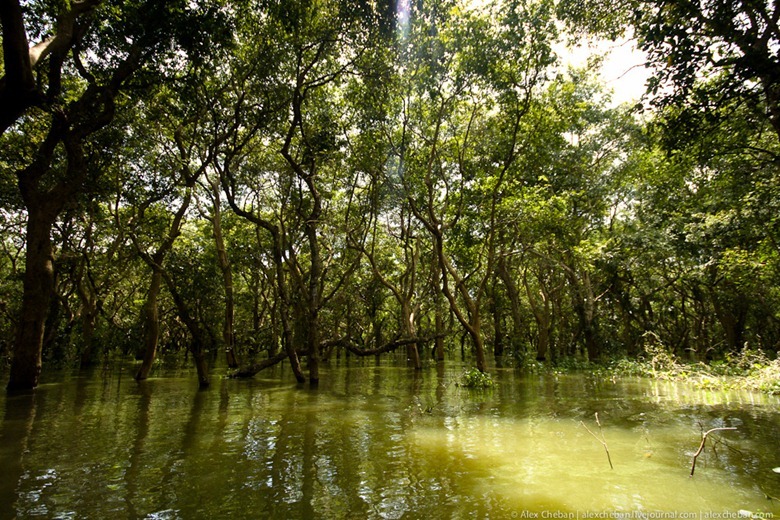Kampong Phluk is a cluster of three villages of stilted houses built within the floodplain of the Tonle Sap lake, about 16 km southeast of Siem Reap, Cambodia. Flooded mangrove forest surrounds the area and is home to a variety of wildlife including crab-eating macaques, and 3000 human inhabitants.
The houses of Kompong Phluk are built on top of wooden poles and stilts between six and eight meters high and tower over the boats moored along the river, which snakes through the village before heading out into the Tonle Sap lake. During the dry season when the lake is low, the buildings in the villages seem to soar atop their 6-meter stilts exposed by the lack of water. At this time of year many of the villagers move out onto the lake and build temporary houses. In the wet season when water level rises, the villagers move back to their permanent houses on the floodplain, the stilts now hidden under the water.

Tonle Sap Lake, upon which the village of Kampong Phluk floats, exhibits a unique hydrologic phenomenon during the wet season - the river reverses direction, filling the lake instead of draining it. The engine of this phenomenon is the Mekong River, which becomes bloated with snow melt and runoff from the monsoon rains in the wet season. The swollen Mekong backs up into the Tonle Sap River expanding the surface area of lake more than five-fold, inundating the surrounding forested floodplain and supporting an extraordinarily rich and diverse eco-system.
In the wet season, the Tonle Sap Lake is one of the largest freshwater lakes in Asia, swelling to an expansive 12,000 square km. More than 100 varieties of waterbirds including several threatened and endangered species, over 200 species of fish, as well as crocodiles, turtles, macaques, otter and other wildlife inhabit the inundated mangrove forests. The Lake is also an important commercial resource, providing more than half of the fish consumed in Cambodia.
During the dry half of the year the Lake shrinks to as small as 2500 square km, draining into the Tonle Sap River, which meanders southeast, eventually merging with the Mekong River.




















Source: Canby Publications. Photos: alexcheban
No comments:
Post a Comment